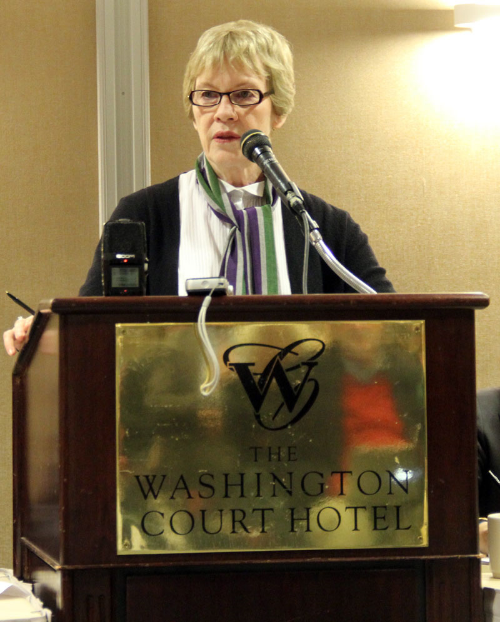Syria needs both political action and humanitarian help by the international community to alleviate its ongoing predicament, experts said on Tuesday.
“It’s a global crisis with global impact,” said Denis Sullivan, professor of political science and international affairs at Northeastern University. “Yes it begins inside Syria. Yes it bleeds across the border into the neighboring states and it continues throughout the region and into the Mediterranean and into Europe, and we only hear a little bit of it here, so it’s not our problem, we think.”
Sullivan and others discussed solutions for the Syrian humanitarian crisis at an event hosted by the Middle East Policy Council.
He called on the international community to support grassroots organizations in the Middle East and to support both refugees and local communities.
“And for God’s sakes, mobilize our foreign policy establishment to end this savage, evil, bloody, evolving and expanding civil war,” Sullivan said.
There are 4 million Syrian refugees, according to the U.N. Refugee Agency. One million refugees are unregistered, and a total of seven or eight million displaced Syrians are living within the country.
Refugees from Syria are ethnic Arabs, Kurds, Assyrians, Armenians, and others, belonging to different religious groups.
Sullivan outlined the number of Syrian refugees in the Middle East:
• Lebanon has 1.2 million Syrian refugees, 300,000 – 500,000 Syrians are not registered
• Jordan is home to 630,000 listed refugees, about 700,000 are unregistered
• About 250,000 Syrians are in Iraq
• About 135,000 Syrians live in Egypt.
The United States has accepted about 500 Syrians, he said.
More than 200,000 Syrians have died since the fighting began four years ago, according to the Syrian Observatory for Human Rights, a politically independent activist group.
“The situation in Syria should be referred to the ICC [International Criminal Court], or to an ad-hoc international or regional tribunal,” said Karen AbuZayd, commissioner at the Independent International Commission of Inquiry on the Syrian Arab Republic. She also is the former U.N. Under Secretary-General.
AbuZayd said regional tribunals have the advantage of being close to the problem, making it easier to “summon both suspects and witnesses.” She urged global players to unite in reaching negotiations, which she believes must include Syrian President Bashar al-Assad.
“Assad has to be part of this solution…who are you going to negotiate with? Some of his nominees? That’s all right too…otherwise we just keep going in two different directions,” she said.
AbuZayd applauded Turkey’s 22 refugee camps and Lebanon’s “third shift” school initiative. The program, supported by the Lebanese government, allows Syrian children, many of whom are unable to enroll in schools, the opportunity to be taught by Syrian teachers.
“This third shift … has been denied in Jordan. And so … tens and tens of thousands of [Syrian children] are not in school,” Sullivan said.
Refugees should be allowed to leave the Middle East, creating a “shared responsibility towards the refugees” by the international community, said Susan Akram, a clinical professor at Boston University School of Law.
Lebanon, according to Akram, does not have an asylum process for Syrians. Often, Syrian refugees are not only paying rent to live on Lebanese land, but they also work on the land to ensure their stay, she said.
Turkey has implemented a temporary protection directive that should be modeled by others, Akram said. Lebanon and Jordan have closed their borders to Syrians.


